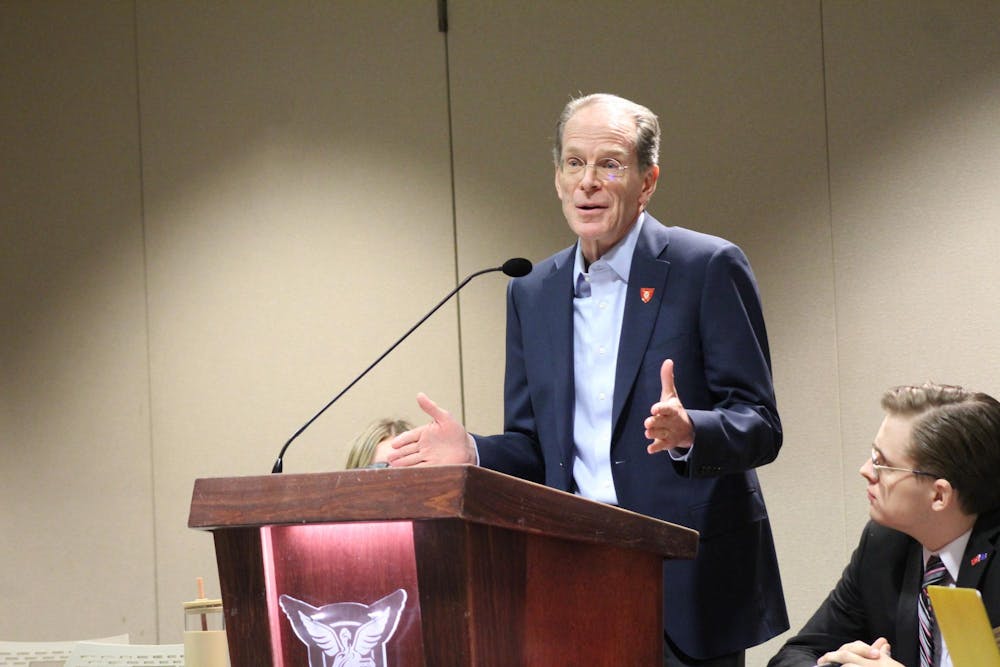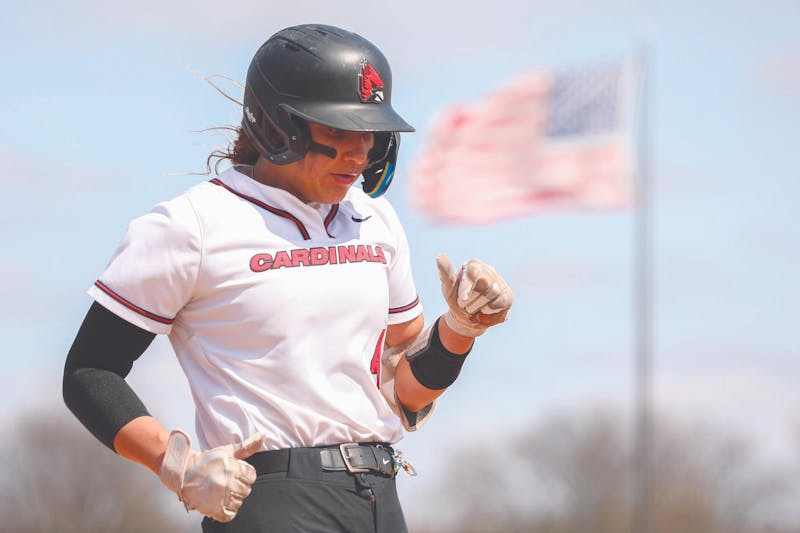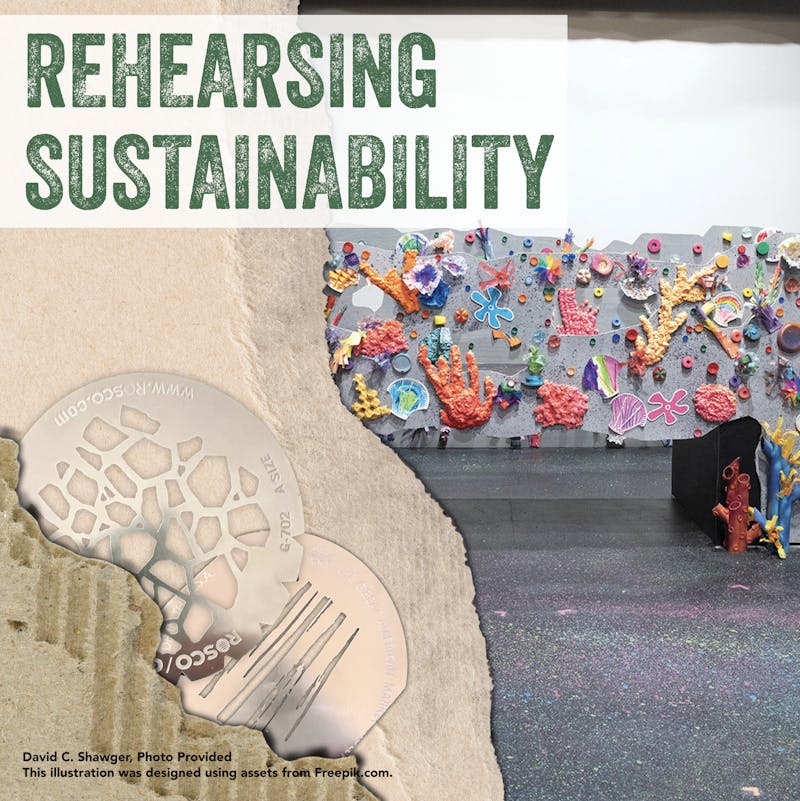Ball State University's Student Government Association (SGA) hosted a special senate Q&A session Wednesday afternoon with Ball State President Geoffrey Mearns at the L.A. Pittenger Student Center.
The session featured questions for Mearns compiled from a comprehensive student survey and inquiries from the live audience. These questions touched on various key issues and topics which directly impact the student body's experience on campus.
One of the first topics Mearns addressed was a survey question about upcoming campus infrastructure projects.
He said it is his “understanding” that the ongoing renovations of the Cooper Science Building will be completed by the time of spring commencement.
“We took about 40% of [Cooper Science] offline. And so, that last phase is just completing what you see as the Eastern facade and then they're going to do the landscaping there,” Mearns said. “That will open up more green space on that north side of the quad.”
According to Mearns, Ball State also received about 82 million dollars from the state in the budget session last spring.
This will enable them to restore several buildings around the north end of campus, including several academic buildings surrounding Emens Auditorium, and “25 to 30 million dollars to do a restoration and a modest expansion” of the College of Architecture and Planning (CAP) building.
Mearns also discussed the recently introduced village renovation and revitalization project.
“That's going to be about a 175-million-dollar project that will include a new performing arts center for our Department of Theatre and Dance, a new innovation center just to the south of the Alderdice gates,” Mearns said.
Other aspects include new apartments, restaurants and a new hotel. According to Mearns, construction will begin as early as the fall of 2024 and should be completed by the summer or fall of 2026.
“This is actually going to be a phased plan that will actually take not just the first portion, but what we hope will be a second phase,” Mearns said. “It's probably about a five to 10-year revitalization project for the entire village.”
However, what Mearns feels is presently the most crucial project to consider is a “significant re-envisioning and restoration” of Bracken Library.
“We need a learning center for the 21st century. Less reliant on lots of books, although we would still have books…but a recognition that now there's so much content that's available digitally and many more opportunities for our students to access that information, and then work together on team projects,” Mearns said. “So there'll be more team learning spaces in there as opposed to lots of spaces where they have just shelves for books.”
Ball State also recently received a four million dollar commitment from a graduate that will enable them to build a new space off of Worthen Arena. According to Mearns, this will “almost double the size” of a strength and conditioning center for Ball State’s student-athletes.
Another survey question came from a student concerned about student safety, specifically how to combat incidents such as recent incidents in which students brought firearms onto campus.
Mearns asked Vice President for Student Affairs Ro-Anne Royer Engle to assemble a safety task force to help with this.
Through this task force, Engle found that many students were unaware of the policy banning firearms from campus and did not understand the consequences of violating such a policy.
“The consequences of an accident or an incident on campus with a firearm are severe and permanent,” Mearns said. “So please err on the side of being cautious and respectful of your fellow students.”
According to Engle, some initiatives have already been taken on by the task force. They’ve updated messaging and signage about firearm policy, extended desk hours at residence halls, changed the time which residence halls lock,, and assigned a University Police Department officer to act as a liaison for each resident hall.
A big issue that emerged from the audience's questions was the need for more accessible transportation, especially on Fridays and Saturdays when buses don’t run.
Various students mentioned that limited accessibility to campus on weekends is a huge problem because there are limited transportation options for people with disabilities who can’t walk where they need to go.
Mearns referred the question to Engle, who said they could explore extending transportation services such as Charlie’s Charter hours.
Contact Meghan Braddy with comments via email at meghan.braddy@bsu.edu or on X @meghan_braddy .





The Daily News welcomes thoughtful discussion on all of our stories, but please keep comments civil and on-topic. Read our full guidelines here.